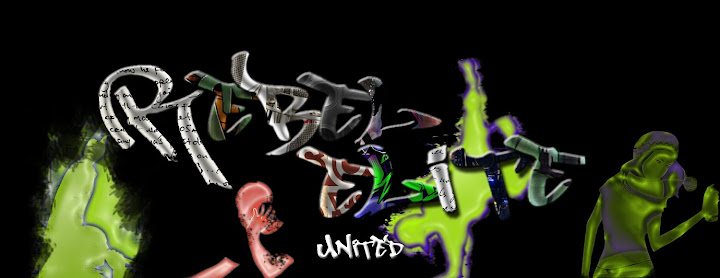
Regularly taking advantage of a vocabulary that boasts words like “synesthete,” “neophytes,” “attrition,” and “conflagration,” it’s no wonder that Common Market’s RA Scion has a reputation for self-assurance. Using his elevated lexicon as ammunition, MC Scion is leading the movement against the unsophistication and banality endemic in much of hip-hop music today. Most importantly, his lyrics remind us that the MC is poet and wordsmith before all else.
Intricate, versatile rhyme schemes and mellifluous alliteration collaborate to give Scion a unique, if mesmerizing, flow. What’s more impressive, his lyrics offer, at once, the best of both worlds for the hip-hop listener. On the one hand, he challenges the astute to keep up with his unyielding sentence structure, while on the other hand he invites the less ambitious to go with the flow and get lost in the verse. But no matter your disposition, you’ll immediately feel the vibe. Although DJ Sabzi deserves a lot of credit here, bringing to the table sonorous, jazz-infused, easy-listening beats that come well-equipped with heavenly synths, flutes and keyboards to make certain your finger stays on repeat.
On the track Swell, from Common Market’s latest album, Tobacco Road, this duality is apparent in the run-on style of Scion’s writing and delivery: “beat entreat a seeker, teachin’ leadership/ group ‘em through the groove, spike the meter, weaker needles skip/ like defeatist-types, see the sign, retreat, this hype is evil/ might it be what I perceive is aiight’s.” If you’re not careful, it’s easy to get consumed by the internal rhyme and lengthy syntax (this is where many listeners get dismayed; in the first line alone every word rhymes at least one syllable). This makes delivery more difficult, and therefore more laudable, but it can also have the effect of hindering an MC’s ability to successfully communicate his message.
Indeed, critics have voiced that Scion focuses too obsessively on the sound of his sentences, rather than the message, which, they say, is watered down or confused by the constant echoing of syllables and the tendency to string together discordant sentence fragments simply for the sake of maintaining the most aurally pleasing flow. Where this criticism is appropriate for an artist like Aesop Rock, who’s lyrics often come across as unassimilable and largely nonsensical (although impressive sonically) Scion manages to keep his writing substantive.
Let’s face it, every MC is occasionally guilty of sacrificing the clarity of their sentences for the sound of their words. It comes with the territory. The voice is, after all, an instrument. But for the most advanced MCs (and Scion’s one of them) it’s also a tool. And it's a tool fully utilized on Tobacco Road. Almost every track possesses a wealth of wisdom waiting to be uncovered. On the track 40 Acres, Scion's tone is at once cautionary and accusatory: "Hustle grand, seen a demand for organic/ In toxicity limits – infinitely more panic/ they're resorting to importing plants from other planets/ It cancels out the importance of the advantage."
Many of his other lyrics share a similar indignation. One of the best, if most incendiary, tracks on the album, 40 Thieves, acknowledges, and perhaps admonishes, the denigration of society by way of deception and exploitation: "From the makers of placebo, a trio pushed/ To ameliorate the feverish, deceivinest looks/ for thieves and crooks booked up in the state's prison system/ It's marketed disregarding of the rate of recidivism."
And here I can't help but point out one of the more ingenious lines penned on the album: "Thoroughly bred equine, bet he try and cover the spread/ Vignette, butter and bread truck – must've been something I said/ Cinnamon sugar on my raison d'etre." The multiple double meanings and bi-lingual wordplay here are excellent examples of why Scion should be placed in an echelon all his own. I can only hope he succeeds in ushering a new generation of like-minded talent.
In the meantime, I'm hugely digging the ground swell of socially conscious, linguistically complex hip-hop coming out of the Pacific Northwest, especially from MassLine. And I think it’s safe to say you can expect a lot more down the Road from Common Market.
And for those interested, all of Scion’s lyrics are posted on the group’s website (http://www.commonmarketmusic.com/lyrics.html). Check out the track below for a taste.
Common Market - Swell
